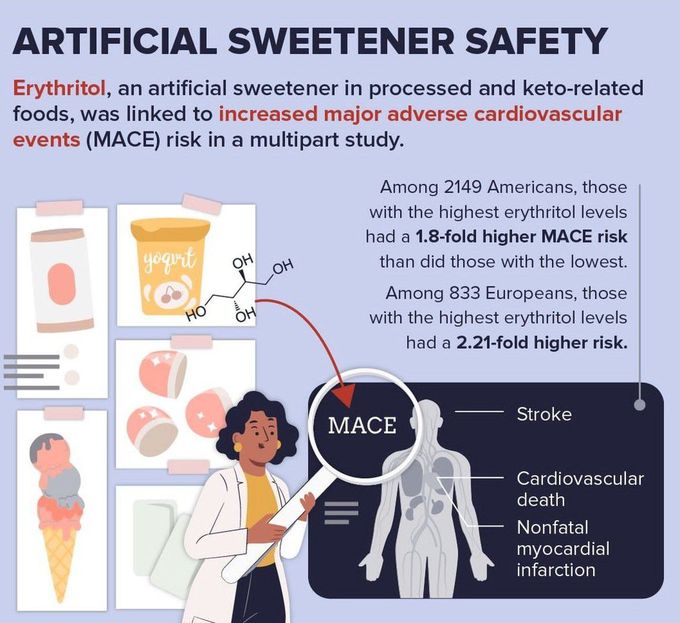


Artificial Sweetener Safety
The debate over whether artificial sweeteners are healthy rages on, with new findings suggesting a troubling association with cardiovascular disease risk and anxiety. New developments in the so-called sugar-free paradox have further called into question whether artificial sweeteners represent a healthy way to cut calories or a potentially dangerous option. Recent findings have explored connections between various sugar alternatives and cardiovascular health risks and anxiety, among other concerns. Perhaps most notably, a recent multi-part study found that one particular option resulted in increased 3-year risk for significant heart conditions. The study had three main parts. First, in 1157 patients undergoing cardiac assessment, researchers found that high erythritol levels were associated with increased risks. These findings were then reproduced in two large populations in two different regions. Researchers also found that adding erythritol to whole blood or platelets led to clot activation. Separately, they also found that ingesting 30 g of an erythritol-sweetened drink — comparable to a single beverage can or pint of keto ice cream — induced marked and sustained (> 2 days) increases in levels of plasma erythritol in eight healthy volunteers. The issue remains controversial because some experts point out that erythritol can be made inside the human body and that intake in most people's diets is typically low. However, senior author Stanley L. Hazen, MD, PhD, points out that 2013-2014 National Health and Nutrition Examination Survey data show that daily intake of erythritol is estimated to reach 30 g/d in some individuals. By: Medscape

